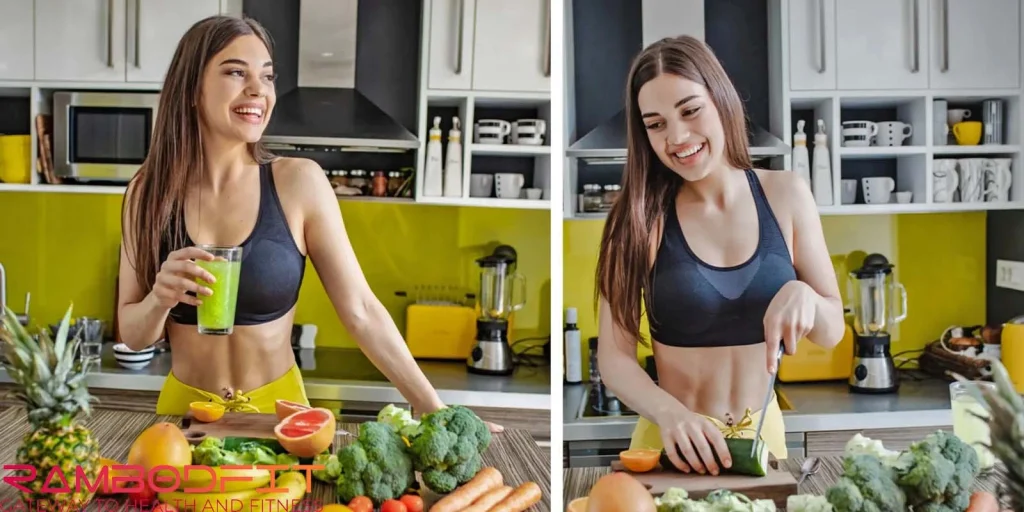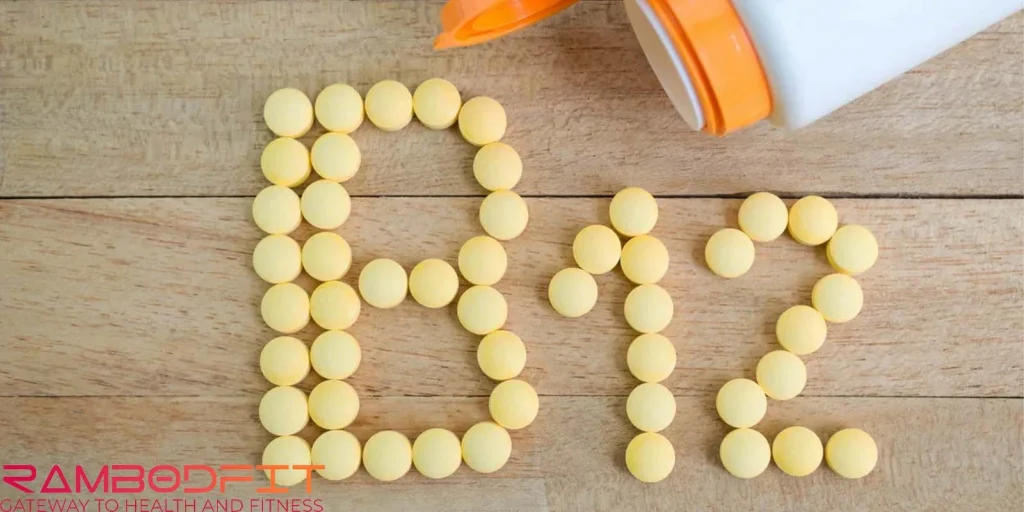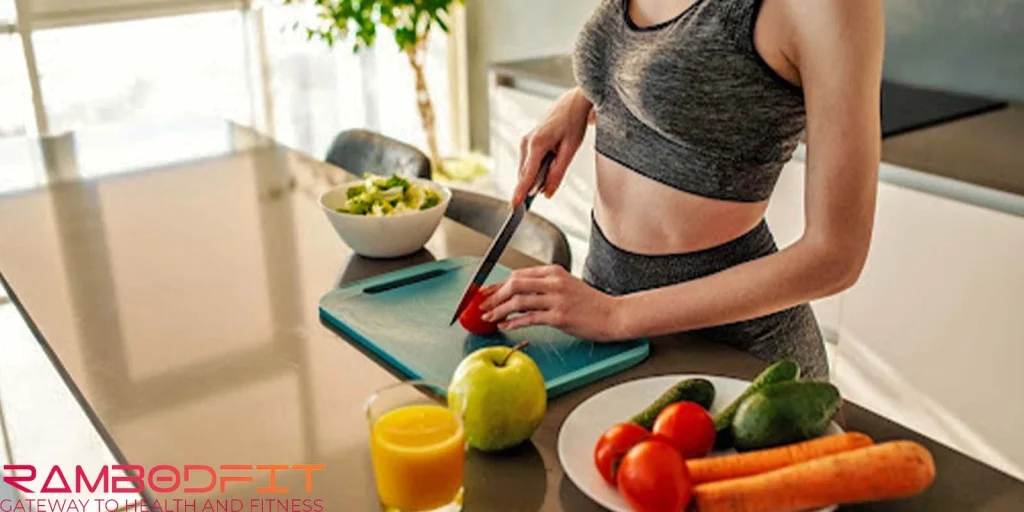


Vitamin B12 for vegans, or cobalamin, is a very important vitamin that your body needs. Even though you need tiny amounts, it plays a big role in keeping you healthy. This vitamin supports:
At Rambodfit, we’ll dig into the importance of vitamin B12 for vegans based on scientific research and discoveries.
Table of Contents

Unlike some other vitamins, the human body cannot create B12 alone. People need to get it either through food or supplements. Those who eat meat get their B12 from animal products. However, vegans have a higher chance of running low because plants do not provide any vitamin B12 for vegans.
Let’s not dodge the issue here. Diets, if not planned, can lack vitamin B12 for vegans in a big way. This isn’t meant to criticize veganism as a lifestyle, but it is a fact we need to take.
Some people think foods like spirulina, mushrooms, or fermented soy might provide you with B12. Research shows they have inactive B12 forms called cobamides. These cobamides attach to B12 receptors but do nothing useful and can even make deficiencies worse. While tiny amounts of real B12 can show up, they are random and not dependable. The key point is clear: plants alone cannot meet our B12 needs.
In the past, people got small bits of B12 from things like dirt on unwashed veggies, drinking unclean water, or eating raw or fermented animal foods.
2. Modern sanitation has made this kind of exposure much less likely today.
The focus on hygiene today, like using chlorinated water, eating pasteurized food, and cleaning produce, has wiped out natural bacterial sources of B12. This helps stop infections but makes it harder to get accidental B12 from food.
3. Gut Bacteria Don’t Help
Many people believe gut bacteria can make all the B12 our body needs. It is true that bacteria in the colon create B12, but the body absorbs it in the ileum, which comes before the colon in our digestive system. Because of this:
4. Vegan Populations Face Unique Risks
At certain times in life or specific lifestyles increase the need to take B12:
Pregnant or breastfeeding women need it to help the baby’s brain and nerves develop.
Infants and kids need it to grow fast and develop their brains.
Older adults often have trouble absorbing B12, so their bodies need more of it.
Athletes depend on it to keep oxygen flowing well and power their cells with energy.
If these groups do not get enough B12, they face risks of serious and lasting damage.
Vegans often turn to fortified foods like:
Nutritional yeast, Plant-based milks like almond, soy, or oat, Meat substitutes like veggie burgers and similar products
The amount and stability of B12 in these foods often differ a lot. Cooking food can destroy B12, and eating these foods makes it unsafe to rely on them as the main sources of the vitamin.
It can take several years for B12 deficiency to show because the liver stores a few milligrams. But when those stores run out, symptoms can get worse and may not be fixable.
Tiredness, trouble focusing, and irritability show up first. These are easy to confuse with being stressed or not sleeping well. Once nerve problems or anemia develop, it’s usually too late to heal.
Stage 1: (Can Be Reversed)
Constant tiredness and feeling weak
Difficulty thinking and memory problems
Sudden changes in mood or feeling cranky
Tingling sensations like “pins and needles”
Tongue that feels swollen or painful (glossitis)
Stage 2: Middle Phase
Losing feeling in hands or feet
Issues with vision (optic neuropathy)
Trouble staying balanced (ataxia)
Higher homocysteine levels, which can increase heart risks
Changes in behavior
Stage 3: Serious Stage (Might Not Be Reversible)
Loss of nerve protection (demyelination)
Worsening memory and dementia-like symptoms
Damage to the spinal cord
Seeing or hearing things that aren’t real (psychosis or hallucinations)

Fortified foods can be an easy way to get vitamin B12 for vegans, but they are not always reliable:
Depending on these foods requires a lot of effort, like reading labels and making sure you eat them.
2. Taking supplements is the safest option.
Every vegan needs B12 supplements. Here are two popular types to consider:
Adenosylcobalamin works at the mitochondrial level and is not as widely used as other forms.
To meet their needs, vegans can follow these dosage suggestions:
Using sublingual or chewable tablets is a good idea to avoid possible absorption problems in the gut.
3. Clinical approaches to treat deficiency involve
These treatments stay safe even in large doses, since B12 dissolves in water and the body flushes out any extra through urine.
Top Supplements and vitamin B12 for vegans with Certification
There are useful articles about the vegan diet and vitamins on Healthline.

Vitamin B12 for vegans is essential. Skipping it puts your brain, blood, and heart at serious risk. But here’s some relief—keeping your B12 levels in check is simple, cheap, and something you can manage yourself.
What to do next:
Check out these articles as well, they may be useful:
No. Nutritional yeast does have B12, but you’d need at least half a cup every day to cover your requirements. That’s not a realistic or reliable way to get enough.
Yes. Heat and light can break down vitamin B12 for vegans. Storing or cooking these foods can cause a major loss of this vitamin.
Yes. Most B12 used in medicine, including cyanocobalamin injections, comes from bacterial fermentation and not from animals.